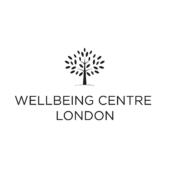Online Social Isolation therapists in United Kingdom
We are proud to feature top rated online Social Isolation therapists in United Kingdom. We encourage you to review each profile to find your best match.
Tayo, Owosina
Registered Psychotherapist, Registered Professional Counsellor
Breaking Free from Social Isolation: Expert Therapy for Connection and Belonging
Discover a path towards connection and fulfillment with our specialized social isolation therapy. Our compassionate therapists provide a supportive environment where you can explore the underlying causes of social isolation and develop strategies to overcome it. Through evidence-based interventions, we help individuals build social skills, enhance self-esteem, and cultivate meaningful relationships. Our personalized therapy sessions address the unique challenges of social isolation, promoting personal growth, and fostering a sense of belonging. Take the first step towards a more connected life. Contact our experienced therapists today to embark on a transformative journey towards social connection, happiness, and fulfillment.
15 Years Experience
Dr Grenville Major
Therapist, MBchB, MRCpsych, MSc psychological therapies
Not everyone needs the company of others but they are a minority. For most of us, the most rewarding experiences we have are the company and experience of others. Overcoming isolation is about finding and re evaluating the reasons we avoid others. I would like to meet with you to see what can be done to help you. This will enable us to get to know each other and see if we can work together. It’s important for you to work with someone you trust and feel safe with.
44 Years Experience
Gemma Autumn
Counsellor/Therapist, Integrative Adult and Adolescent Counsellor Cert, PgDip, MBACP Accredited
I work with those going through issues related to social isolation.
9 Years Experience
In-Person in London, England
Online in United Kingdom
Dr Aneliya Gonsard
Psychologist, DClinPscy, MSc, BA
Social isolation can be the aftermath of multiple factors. Some peole struggle with being around others and in their attemt to avoid painful emotions and experiences, choose to keep contacts to a minimum. The reasons for interpersonal difficulties and the resulting avoidance of relationships can also be multifaceted, but in my experience almost aways link back to adveristies at various stages of a person's life (including their very early life).
Poverty, physical illness and disability and social exclusion are also often reasons for people to find themselves alone and isolated.
If you feel that this is an issue you are struggling with and would like to explore the reasons for it, please get in touch.
15 Years Experience
In-Person in Plovdiv, Bulgaria
Online in France, Germany, United Kingdom
Dr Anna Dako
Counsellor/Therapist, AHPP, RSME/T, UKSMDT
Feeling socially included and in-touch with the world is one of the most important groundings for wellbeing. I have lived in three countries and am raising a multi-cultural family, thus I hope my work applies to anybody needing support in growing strength and confidence in feeling well-in-place. Contact me for details and we can discuss your specific needs during a consultation session, and build a plan for your first block of sessions as we speak.
13 Years Experience
In-Person in Edinburgh, Scotland EH10 4DW
In-Person in Aberdeen, Scotland AB15
Online in United Kingdom
Wellbeing Centre London
Registered Psychotherapist, Psychotherapy, Counselling, Psychology, CBT, EMDR and Therapy, Coaching
We provide effective Social Isolation counselling and therapy.
15 Years Experience
Patchouli Therapy
Counsellor/Therapist, Prof. Adv. Dip. PC, Dip. Hyp, Dip. CBT/REBT, Dip. EFT, Dip. SBA, MA Psychosynthesis Psychology
I am a Psycho-Spiritual Counsellor offering bespoke services using a combination of holistic and complementary intervention to explore your circumstance surrounding your social situation that led to isolation by examining your relationship with yourself and others.
12 Years Experience
Online in United Kingdom
(Online Only)
Janine & ComposurePsychology Team
Psychologist, Chartered Clinical Psychologist, HCPC & BPS registered, DClinPsy, CSAccred.(AAC), MPhil (cantab)
All of our Clinical Psychologists at ComposurePsychology are highly experienced in helping people understand, manage and overcome social isolation, loneliness and difficulty making or keeping friends. We draw from evidence based therapies including; CBT, ACT, CFT, SFT, DBT, EMDR, systemic, narrative, psychodynamic and others.
12 Years Experience
In-Person in London, England W1G 9QN
In-Person in Surrey, England
Online in France, Spain, United Kingdom
Emma Dean
Hypnotherapist, MA Hons, DipCaH, PNLP
I'm Emma, an integrative transpersonal practitioner dedicated to guiding you on a journey of self-discovery and healing. Through a blend of hypnotherapy, breathwork, meditation, Acceptance and Commitment Therapy (ACT), Neurolinguistic Programming (NLP), Emotional Freedom Technique (EFT), and spiritual coaching, I create a compassionate safe space for you to connect with the deepest levels of yourself. I specalise in helping clients to overcome social anxiety and isolation. I passionately believe in the medicine of community. Together we will create a personalised plan to help you remove your barriers to connection so that you can find your tribe turn social isolation to inclusion.
3 Years Experience
Online in United Kingdom
(Online Only)
Alison Edwards Therapy & Supervision
Psychologist, CBT Therapist, FMBPsS, MA (Hons), MSc, CertCouns, MSc
I have worked with a lot of clients who became very socially isolated during the Covid pandemic, and who have struggled to get back to socialising again after lockdowns. Many clients have had problems with social anxiety/ social phobia or depression before Covid, and some clients have new anxieties, fears and phobias due to the pandemic, lockdown and family challenges. I provide Cognitive Behaviour Therapy which is the recommended psychological therapy for social anxiety/ social phobia and depression. I can also provide CBT for traumas and PTSD.
17 Years Experience
Online in Netherlands, Spain, United Kingdom
(Online Only)
Birgit Schreiber Dr
Psychologist, PhD and MA in Psychology
Social Isolation is painful and creates much longing in us, together we explore how to find ways to change some pattern so that you are less isolated.
25 Years Experience
Online in Australia, United Kingdom
(Online Only)
Marianna Trezza -The Growing mindset
Counsellor/Therapist, MA (Hons), Adv Dip. Counsel. & Psychoth.,Dip. Hypnoth., X-Cultural Adaptation Coun. Reg. BACP 572613
I hear the depth of your feelings about social isolation. It's ironic how social media can sometimes exacerbate this sense of loneliness, even when you're connected to others online all day. The lack of meaningful, in-person interactions can leave you feeling disconnected and alone.
There are many reasons why you might be experiencing this isolation:
Children Moving Away: The empty nest syndrome can be a significant adjustment, leaving you feeling lonely and disconnected from family life.
Language Barriers: Not speaking the dominant language in your community can make everyday interactions challenging and isolating.
Feeling Different: Whether it's cultural differences, lifestyle choices, or personal identity, feeling like you don't fit in can be incredibly isolating.
Community Acceptance: Not feeling accepted by your local community can make you feel like an outsider, even in your own home.
It's important to remember that these feelings are valid and common. Talking about them can be a powerful step towards healing and connection. I'm here to offer a safe, non-judgmental space where you can express your feelings freely.
Together, we can explore ways to address your isolation:
Identify Support Networks: Find or create groups that align with your interests and values.
Language Support: Explore language classes or conversation groups to improve communication.
Community Engagement: Discover local activities or events where you can meet like-minded people.
Embracing Your Uniqueness: Celebrate what makes you different and find strength in your individuality.
Remember, you're not alone in feeling this way. Many people struggle with similar challenges. Contact me today, and let's start a conversation that can help you feel more connected and understood.
22 Years Experience
In-Person in London, England NW5
In-Person in Orpington, England BR5
Online in Australia, Italy, United Kingdom
Natasia Hypnotherapy
Hypnotherapist, Clinical Hypnotherapist, Energy Healer, Meditation Guide/Teacher, Spiritual Life Coach, QHHT, Rapid Transformational Therapy Practitioner
By finding root cause of your social isolation, we can change from the deep subconscious roots and clear your negative beliefs, and help you become more connected with others, rid of the pattern of social isolation, attract, maintain, and keep more positive relationships, and become a lot happier alone or with others.
4 Years Experience
Online in United Kingdom, Multiple States
Arizona, California, Delaware, Florida, Georgia, Hawaii, Nevada, New Mexico, New York, North Carolina, Washington, West Virginia
,
Multiple Canadian Provinces
Alberta, British Columbia, Manitoba, New Brunswick, Newfoundland And Labrador, Northwest Territories, Nova Scotia, Nunavut, Ontario, Prince Edward Island, Quebec, Saskatchewan, Yukon
(Online Only)
Liz Frings
Counsellor/Therapist, PG Diploma Person-Centred Psychotherapy. EMDR Accredited
How Therapy Can Help with Social Isolation -
Feeling disconnected from others is one of the most painful human experiences. Whether you've gradually drifted away from friends, struggled to make connections in the first place, or found yourself intentionally withdrawing from social situations, social isolation can take a serious toll on your mental and physical health. The good news is that therapy can help you understand what's keeping you isolated and gently guide you back toward meaningful connection.
What Social Isolation Looks Like
Social isolation isn't just about being alone—it's about feeling lonely, disconnected, or unable to form or maintain meaningful relationships. It might show up as:
Having few or no close relationships
Declining invitations or avoiding social situations
Feeling lonely even when you're around people
Difficulty reaching out or initiating contact with others
Feeling like you don't belong anywhere
Spending most of your time alone (not by choice)
Losing touch with friends and family
Feeling anxious or awkward in social situations
Believing nobody would understand you or want to know you
Over time, isolation can lead to depression, anxiety, low self-esteem, and even physical health problems. It can also create a vicious cycle—the more isolated you become, the harder it feels to reach out.
How Therapy Helps
Understanding the Root Causes
Therapy helps you explore what's driving your isolation. Sometimes it's social anxiety or fear of rejection. Other times it's past trauma, depression, low self-worth, neurodivergence (like autism or ADHD), grief, major life transitions, or simply not knowing how to connect with others. Understanding why you've become isolated is the first step toward change.
Building Social Skills and Confidence
If you struggle with social interactions—whether due to anxiety, lack of practice, or never having learned certain skills—therapy provides a safe place to develop them. Your therapist can help you:
Practice conversation skills
Learn to read social cues
Develop assertiveness and boundary-setting
Work through social anxiety
Build confidence in your ability to connect
The therapeutic relationship itself becomes a practice ground for connection.
Challenging Negative Beliefs
Social isolation often comes with harsh internal narratives: "Nobody likes me," "I'm too boring," "People would reject me if they really knew me," or "I'm better off alone." Therapy helps you examine these beliefs, understand where they came from, and develop more balanced, compassionate perspectives about yourself and your worthiness of connection.
Processing Past Rejection or Trauma
If you've experienced bullying, rejection, abandonment, betrayal, or relational trauma, these experiences can make connection feel dangerous. Therapies like EMDR can help process these painful memories so they have less power over your present-day relationships. You can learn that past hurt doesn't have to dictate your future connections.
Breaking the Avoidance Cycle
Isolation often involves avoidance—you want connection but fear the vulnerability, rejection, or awkwardness that comes with it, so you stay home. Your therapist can help you gradually face these fears through gentle exposure, starting small and building up your tolerance for social situations at your own pace.
Addressing Depression and Anxiety
Social isolation and mental health issues often go hand in hand. Depression can sap your motivation to connect, while anxiety can make social situations feel terrifying. Treating these underlying conditions through therapy makes it easier to take steps toward connection.
Creating a Roadmap for Connection
Your therapist can help you identify realistic, manageable steps toward building connections—whether that's joining a club, reaching out to an old friend, attending a community event, or engaging in online communities. They'll help you set goals that feel achievable rather than overwhelming.
Exploring What Connection Means to You
Not everyone needs or wants the same level of social interaction. Therapy helps you clarify what meaningful connection looks like for you—whether that's a few deep friendships, a broader social circle, reconnecting with family, or finding community around shared interests. It's about quality over quantity.
Working Through Shame
Many people feel ashamed about being isolated, which only makes it harder to reach out. Therapy provides a judgment-free space where you can be honest about your loneliness without shame. This acceptance from your therapist can help you develop self-compassion, which makes connection with others feel more possible.
Recognizing When Isolation Is a Symptom
Sometimes isolation isn't the primary issue—it's a symptom of something else like trauma, grief, chronic illness, major life changes (moving, divorce, retirement), or neurodivergence. Therapy helps address these underlying issues, which naturally reduces isolation.
14 Years Experience
In-Person in Nottingham, England NG2 6EP
In-Person in Nottingham, England NG3 6BW
Online in United Kingdom
CJJPR
Counsellor/Therapist, (Dip.Couns)
We provide specialised support and therapy for individuals experiencing social isolation, offering compassionate, evidence-based interventions to help rebuild connections, reduce loneliness, and improve overall mental wellbeing. Our team has extensive experience and in-depth knowledge in supporting clients facing long-term isolation, withdrawal from social activities, and the emotional challenges associated with feeling disconnected from others.
Our therapy focuses on developing coping strategies, improving social confidence, and fostering healthy interpersonal relationships. Through personalised interventions, we help clients overcome feelings of loneliness, engage meaningfully with their communities, and strengthen their emotional resilience.
Whether you are searching for social isolation counselling near me, support for loneliness, therapy for emotional disconnection, or help building social relationships, our professional team provides tailored, evidence-based guidance designed to restore connection, confidence, and long-term mental and emotional wellbeing.
21 Years Experience
In-Person in London, England
In-Person in Southampton, England
Online in Ireland, United Kingdom, Florida
Nicole Rolls
Counsellor/Therapist, PG Dip, MA, BACP Accred, EMDR Accred, 20 years experience as a Therapist
Social isolation can come as a result of loss of lives or connections. It is important to understand why this is happening and we will work together to find ways to reengage that could bring you more joy and satisfaction in your life.
20 Years Experience
In-Person in Sutton, ENG
Online in United Kingdom
Saffron Marriner
Counsellor/Therapist, MBACP (Accred)
Social isolation has become an increasingly prevalant issues, exacerbated by technological advancements and the global pandemic. It affects a person's mental, emotional and physical well-being. Addressing social isolation through an integrative humanistic and trauma informed approach offers a holistic pathway to healing and reconnection. It can have led to feelings of loneliness, depression and anxiety. Recognising the multifaceted nature of social isolation is important for effective integration. Social isolation can be due to various reasons including physical and/or mental health challenges, geographical barriers, socioeconomic status and traumatic experiences. Building a safe therapeutic relationship, establishing trust is extremely important. My clients should feel understood and accepted by me. I aim to empower people by acknowledging your strengths and encourage active participation in your healing process. I will encourage you to engage in support groups, social activities or communiity services, where you can, in order to build or rebuild social networks. We will incorporate mindfulness practice to help you stay present and develop self-compassion, reducing feelings of loneliness and self-criticism. I also encourage my clients to express yourself creatively, using whatever tools work best for you individually. By understanding your unique experience and fostering an environment of safety, empathy and growth, I work with you to help you reconnect with yourself and your community, in order to enhance your quality of life.
21 Years Experience
In-Person in Christchurch, England BH23 3NE
Online in Ireland, United Kingdom
The PsychoTRAUMA Clinic (Convergence College of Psychotherapy)
Registered Psychotherapist, Rev, DD (hon), DMin, Various Dips & Certs.
Loneliness is quite difficult and can be mentally damaging - thinking of imprisonment in isolation and brainwashing techniques this can be tortuous for many. Support in relationship is so important for many to experience and we are there to offer that help and support. to offer relationship and a friend in need to the lost and disenfranchised. simply caring.
30 Years Experience
Karen Queller
Art Therapist, M.A Expressive Arts Therapy
Discover your inner strengths, and find new ways to connect with yourself and others.
6 Years Experience
In-Person in Beverly Hills, CA
In-Person in Encino, CA
Online in United Kingdom, Multiple States
Alabama, Alaska, Arizona, Arkansas, California, Colorado, Connecticut, Delaware, Florida, Georgia, Hawaii, Idaho, Illinois, Indiana, Iowa, Kansas, Kentucky, Louisiana, Maine, Maryland, Massachusetts, Michigan, Minnesota, Mississippi, Missouri, Montana, Nebraska, Nevada, New Hampshire, New Jersey, New Mexico, New York, North Carolina, North Dakota, Ohio, Oklahoma, Oregon, Pennsylvania, Rhode Island, South Carolina, South Dakota, Tennessee, Texas, Utah, Vermont, Virginia, Washington, Washington, D.C., West Virginia, Wisconsin, Wyoming
,
Multiple Canadian Provinces
Alberta, British Columbia, Manitoba, New Brunswick, Newfoundland And Labrador, Northwest Territories, Ontario, Prince Edward Island, Quebec, Saskatchewan, Yukon
Jayne Batten
Counsellor/Therapist, MSc, CT, RPC, MPCC
We can address social isolation by exploring its root causes—whether they stem from past trauma, mental health challenges, neurodivergence, or chronic disconnection—and helping clients understand the impact of prolonged loneliness on their well-being. The focus is on rebuilding a sense of belonging through safe, meaningful connection, while gently addressing the fears, beliefs, or patterns that keep people withdrawn. Therapy offers both emotional support and practical tools to help clients reconnect with others at a pace that feels manageable and authentic.
7 Years Experience
In-Person in Irricana, AB T0M
Online in United Kingdom,
Multiple Canadian Provinces
Alberta, British Columbia, Manitoba, Newfoundland And Labrador, Northwest Territories, Nunavut, Saskatchewan, Yukon






















